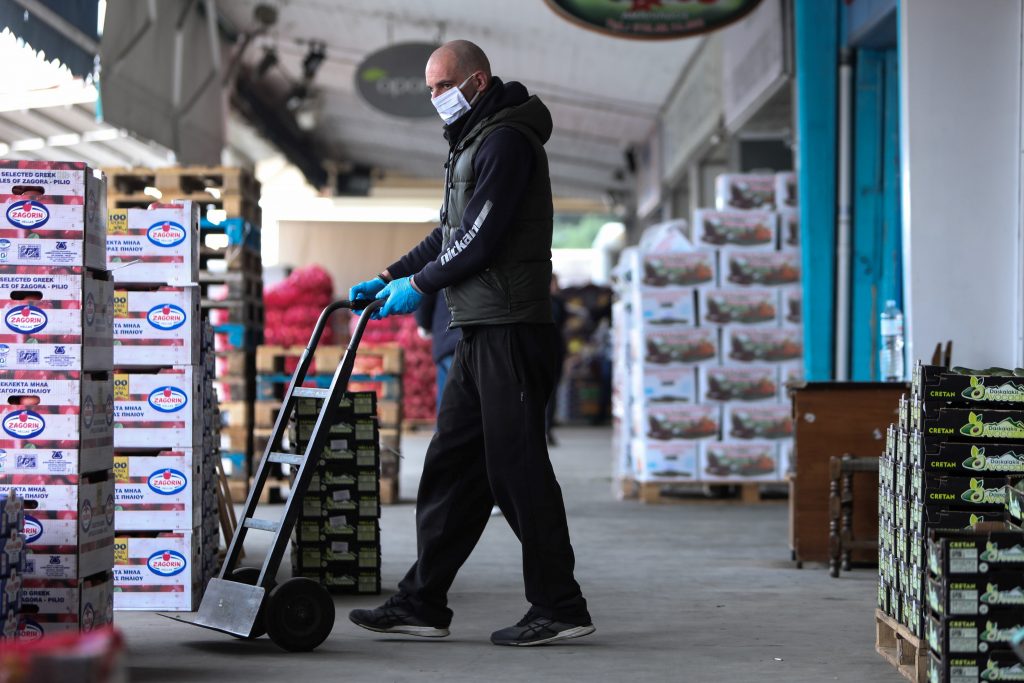Welcoming some 32.7 million tourists in 2023, Greece is about to launch a new tourism season and break all records this year emerging as one of the most-in-demand destinations worldwide. But while more travelers are picking Greece for their holidays, more investors are investing in luxury hotels, and more airlines are boosting their flight schedules to the country, tourism enterprises are struggling to find staff.
According to the latest estimates, the sector may be faced with over 50,000 unfilled jobs this year threatening to impact hospitality and F&B businesses as well as Greece’s excellent reputation for the quality of its services.

In the run-up to Greek Easter on May 5, which traditionally marks the launch of the season, To Vima spoke to the people who know the tourism sector best, the challenges, and what needs to be done.
Staff Shortages in Tourism a Global Problem
According to the latest findings by the Research Institute for Tourism (ITEP), one in five posts in tourism or some 53,000 jobs were never covered in 2023 disrupting the operation of hotel enterprises.
Hellenic Chamber of Hotels (HCH) President Alexandros Vassilikos acknowledges the growing problem, adding however that it is also very much a European and global issue affecting not only tourism but most sectors.
Vassilikos, who is also the president of HOTREC, the umbrella association for hotels, restaurants, and cafes in Europe, goes on to attribute the situation to changing demographics in Europe, to the changing lifestyle of younger generations and of consumers, and at the same time to the needs of businesses which are also changing.
“The job market has still not adapted to these significant shifts; and obsolete practices cannot solve new problems. We must find adjustable and flexible ways in order to reach a new balance,” he tells To Vima, and adds that a fresh framework of operations will have to apply equally to all market players.
Alexandros Thanos, executive director at the Greek Tourism Confederation (SETE), which represents more than 51,000 sector businesses and professionals in Greece, echoes Vassilikos.
Human Resources at the Center of Greek Hospitality
“Human resources are one of the most critical factors affecting the development of tourism in Greece. After all, our country stands out for the level of its hospitality and this is one of our competitive advantages,” Thanos tells To Vima, adding that SETE has repeatedly raised the issue and made proposals.
He cites a recent INSETE study which found that in the 2020-2023 period, some 60,225 tourism jobs remained vacant. Mostly impacted were the South Aegean Region, which includes popular islands such as Mykonos, Rhodes and Santorini, and Central Greece. The most sought-after jobs concerned chamber maids and specialized manager positions.
To address the problem and help tourism enterprises deal with staff needs, the government revised a law last year paving the way for the recruitment of employees from third countries. So far, 90% of the hotels in Greece have not hired third country nationals, studies find.
Education and Training to Address Staffing Needs
Greek Tourism Minister Olga Kefalogianni says staff shortages increased during Covid-19. To ensure the viable future of the sector as well as the competitiveness of the Greek tourism product, she proposed increasing advanced tourism education and training options.
In order to be able to meet the growing tourist demand and be up to date with post-pandemic trends and technologies, Thanos underlines the need to recruit foreign workers and make more upskilling and reskilling programs available.
He goes on to add that although the sector has in the last few years improved working conditions and wages to attract employees, issues still creating problems include lack of housing at high-in-demand destinations as well as fierce competition.
“Creating specialized training and addressing seasonality in tourism as well as finding incentives to re-engage the labor force which was lost during the pandemic are essential to resolving the problem as is bringing together the public and private sectors in this endeavor,” says Thanos.
Greek Tourism Stakeholders Taking Action
Vassilikos says hoteliers are making all efforts so that shortages are in no way affecting the visitor experience and the quality of services. “This is evident,” he says, “in the exceptional ratings Greek hotels have received in the last two years despite the problem”.
“To achieve this we have a three-pronged strategy: we’ve improved working conditions, short term we are enabling the recruitment of third country nationals, and long term we are upgrading education and training to keep ahead of new trends and demands,” he says. The Hotel Chamber is also running the “My Hospitality” (Filoxenia Mou) program in grade schools as part of skills workshops introducing pupils to the hospitality sector and a career awareness program for high schools is in the pipeline.
Vassilikos goes on to stress the importance of dialogue particularly with regard to a “people-centered sector which depends on interpersonal ties and smiles. Hospitality is all about the visitor experience not the product. That’s why a hotel is above all the product of its people,” he says. And this is why he believes the sector will be among the last to be disrupted by AI.
On its part, SETE has launched the Executive Seminars series which offers it members solutions and guidance. In collaboration with the Hellenic-German Chamber of Commerce it supports six vocational schools in Greece specializing in tourism and hospitality as part of efforts to upgrade education offered. SETE also invites hoteliers interested in on-the-spot training, and lastly, supported by RRF funds, INSETE offers consulting, training, and certification for the unemployed and employed aimed at over 17,000 beneficiaries.
Both Thanos and Vassilikos agree that tourism and the hospitality sector are significant forces of the Greek economy and require investing in a new approach.








